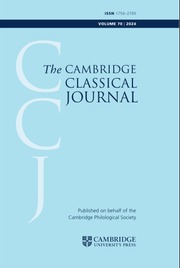Article contents
Economic growth and the politics of entitlement
Published online by Cambridge University Press: 23 January 2012
Extract
Discussions of economic growth in antiquity have been primarily concerned with whether or not it occurred. Can we, from the array of unsystematic and often random information we have about individual and community wealth, and in the face of our very considerable ignorance about even such basic matters as population levels, find ways of measuring either aggregate or per capita growth? The second focus of scholarly energy has been on how growth might have been achieved, on levels of productivity and what limited them, on how institutions might have impeded or facilitated growth, and on the degree to which barriers may have been deliberately removed over time and growth consciously encouraged. This paper is not directly interested in either of those sets of questions. It is interested in who wanted growth in the first place.
The default assumption in discussions of growth often seems to be, at least implicitly, that it is brought about either by need or by greed. The desire of individuals to satisfy their needs more fully leads to an increase in, at the very least, aggregate productivity, and might be expected inevitably to drive growth from the supply side. The desire of individuals to increase their consumption drives growth from the demand side. The default assumptions tend to stop there, as if what counts as need is absolute, a matter of a certain minimum number of calories or ‘wheat equivalent’ a day, and as if greed is simply part of human nature.
- Type
- Research Article
- Information
- Copyright
- Copyright © The Author(s). Published online by Cambridge University Press 2009
References
BIBLIOGRAPHY
- 4
- Cited by




